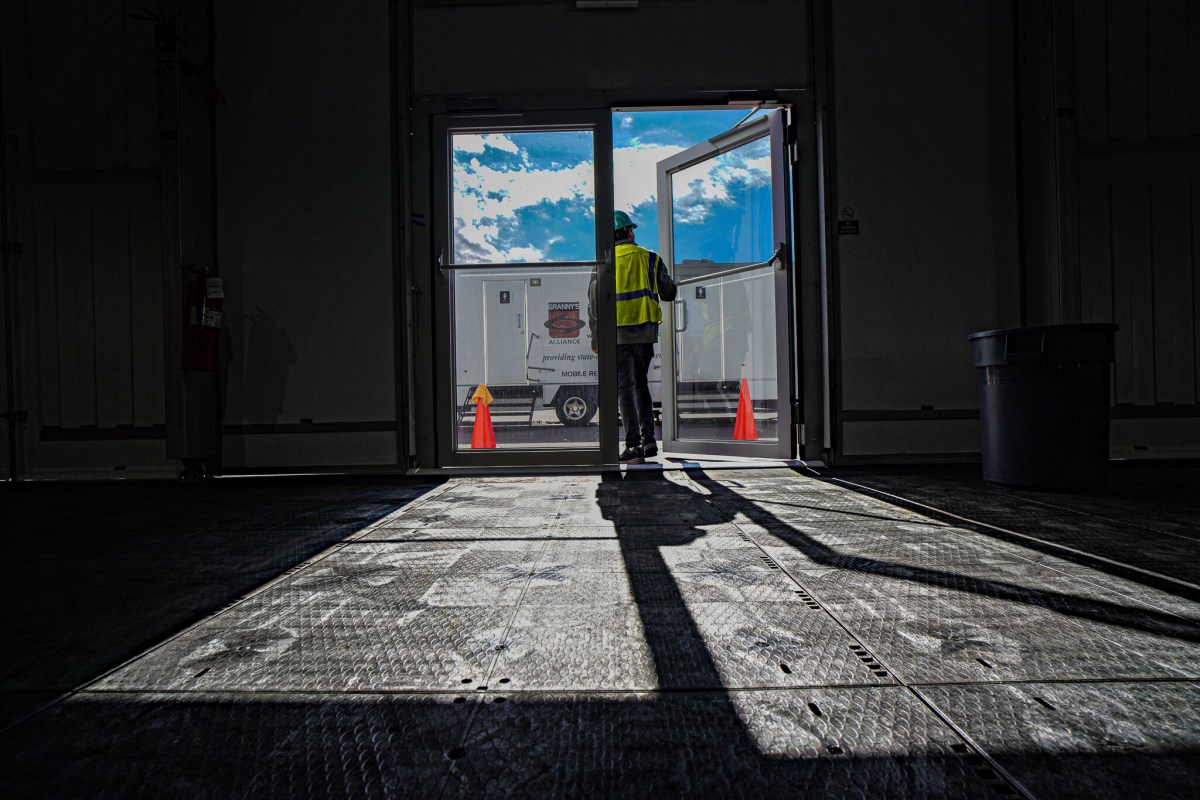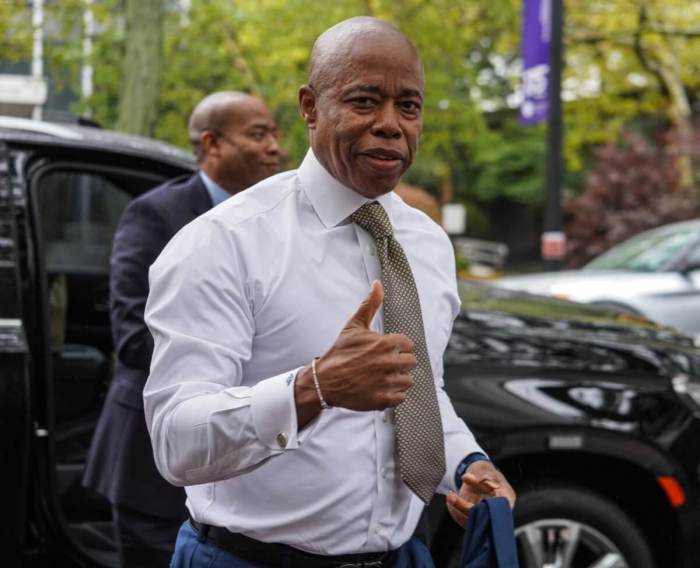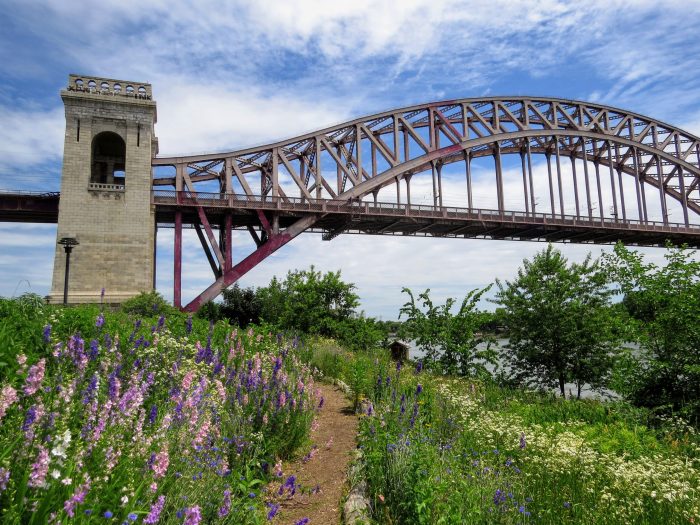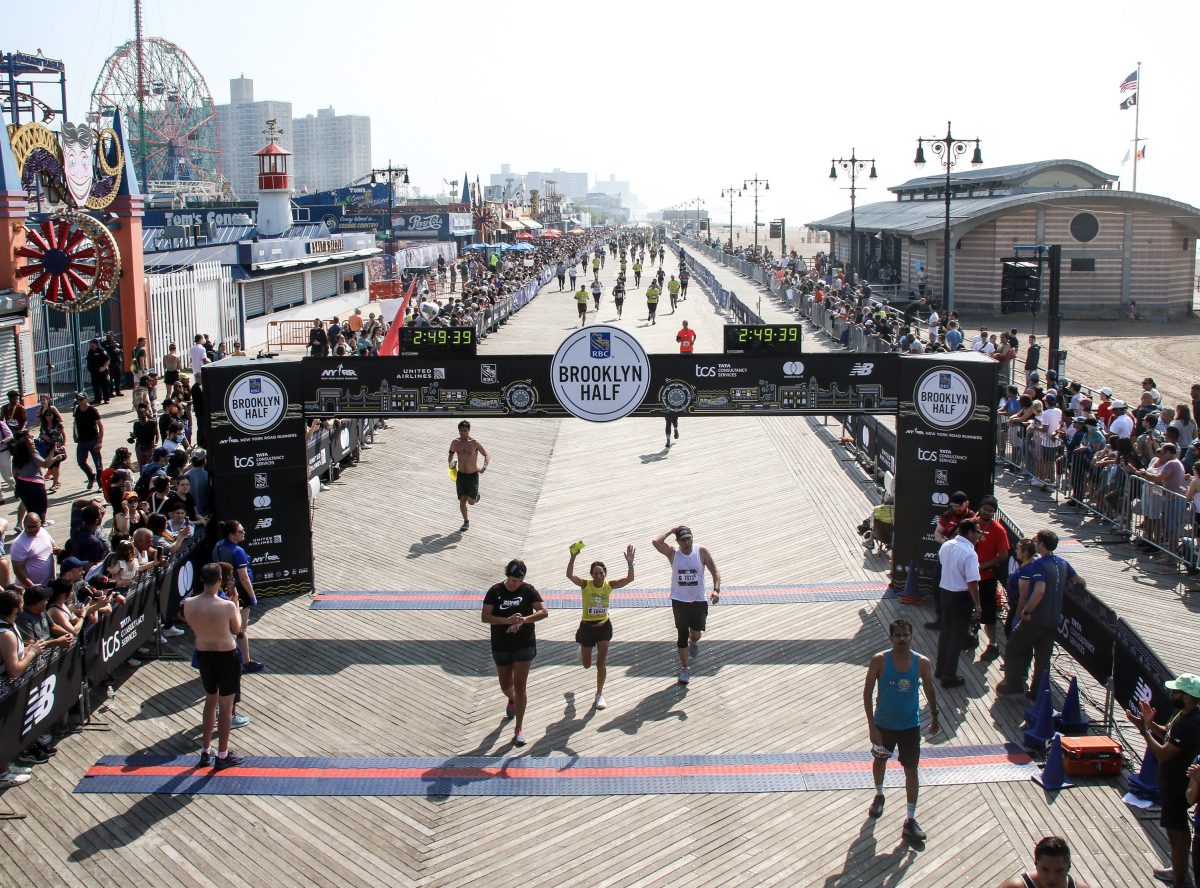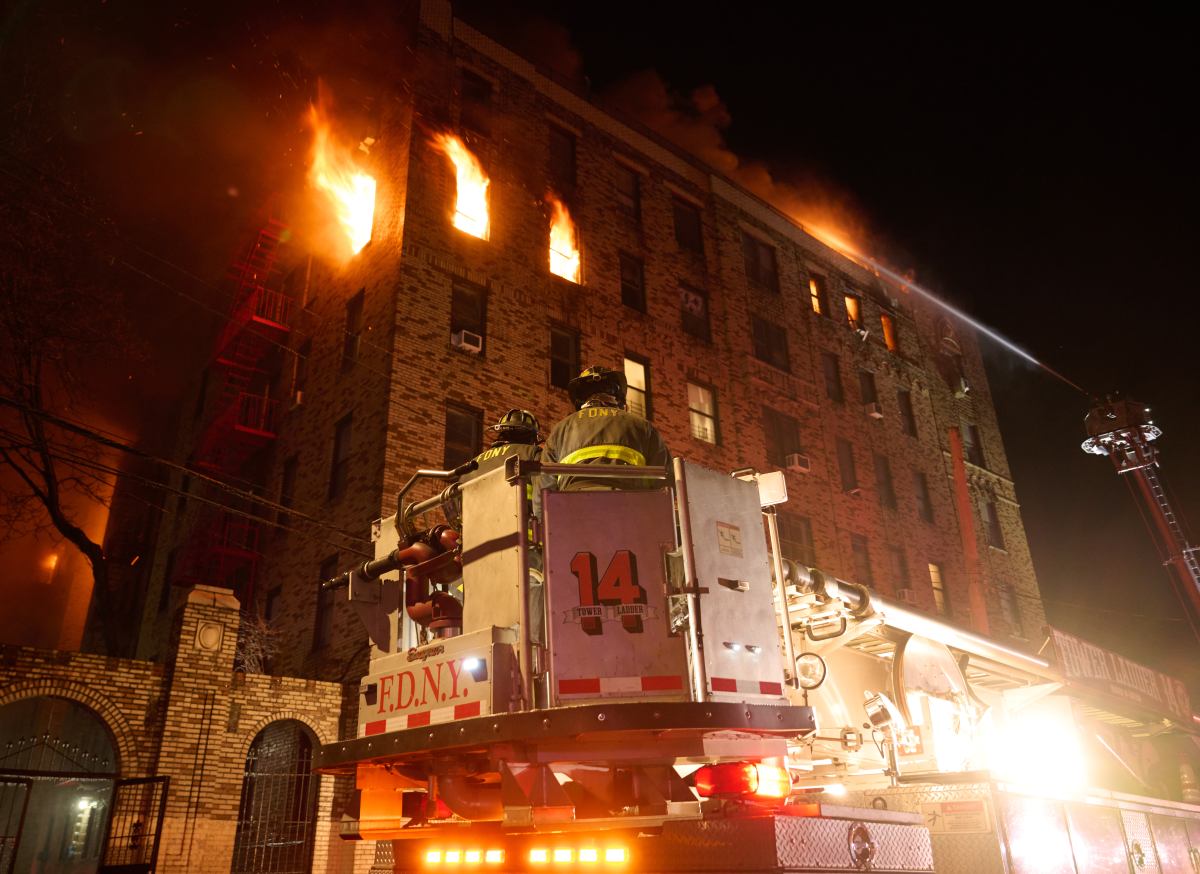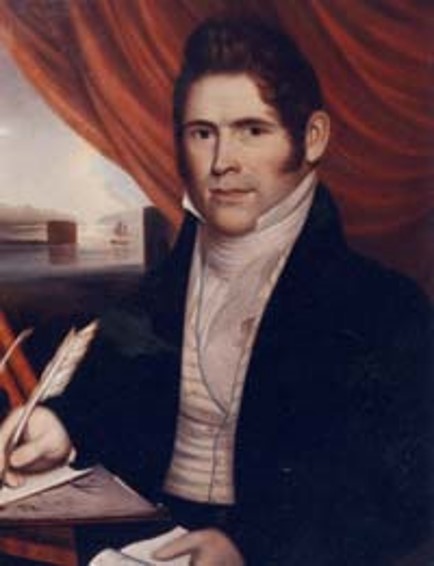The tent city on Randall’s Island erected to house the influx of asylum seekers will be taken out of use starting next week, the mayor announced Thursday.
Officially known as the Humanitarian Emergency Response and Relief Center, the large tent facility opened to its first visitors on Oct. 19 after a controversial history that saw its original location inside the Bronx’s Orchard Beach Parking Lot abandoned due to flooding. The complex was designed to temporarily house single male migrants; however, Mayor Eric Adams says now, less than a month after it became operational, it is no longer needed.
Mayor Adams said on Nov. 10 that the Randall’s Island location will instead be replaced with the Midtown hotel the Watson and will include 600 rooms.
“We continue to welcome asylum seekers arriving in New York City with compassion and care. This Humanitarian Emergency Response and Relief Center will provide asylum seekers with a place to stay, access support, and get to their final destination,” Mayor Adams said. “The city is currently caring for over 17,500 asylum seekers, a number that continues to grow steadily. We will continue to pivot and shift as necessary to deal with this humanitarian crisis, but it’s clear that we still need financial assistance from our state and federal partners.”
This decision comes after the Mayor’s office says that while migrants continue to arrive, the pace at which they are coming is slowing. This is in part due to the Department of Homeland Security announcing in October that some Venezuelans would be turned away at the border.
According to the Mayor’s office, those currently residing within the tent city will be offered transport to the Watson Hotel where they will be offered shelter, food, medical care, and casework services. Murad Awawdeh, Executive Director, New York Immigration Coalition commended the closure.
“We applaud the City’s decision to close the Randalls Island encampment and relocate existing and future asylum seekers to a new location better suited to ensuring they have ready access to mass transit and the supportive services they need to more fully integrate into New York City life. Still, it is imperative that the city moves quickly to offer permanent housing to longtime shelter residents and others stuck in the city’s overburdened shelter system,” part of Awawdeh’s statement read.
Since the migrant crisis began, the mayor’s office says the city has 58 hotels as emergency shelters and three humanitarian relief centers, as well as enrolled children in public schools.



